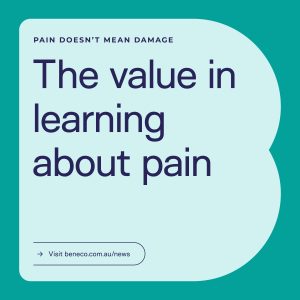
Is surgery really necessary? A great discussion point: More and more information is highlighting the fact that surgery is not better for reducing pain than non-surgical options. The latest article discusses this in detail. Last year, over 100,000 surgeries were performed in Australian public hospitals. The real number is much high given that most surgeries are performed in private hospitals.
The big unknown is that many common orthopaedic surgeries are not better for reducing pain that non-surgical options. There are alternatives that are cheaper, and safer – such as exercise programs. This article looked at 3 of the most common orthopaedic surgeries that may be doing more harm than good and costing people more than just their money.
Spinal fusion for back pain
Research shows that there is substantial evidence that spinal fusion is not more effective than non-surgical treatments (such as an exercise program) and often results in complications. About one in six patients experience a serious complication, such as an infection, blood clot, nerve injury, or heart failure. In NSW. only one in five workers who have spinal fusion return to work after two years and one in five have another spine surgery within two years.
Arthroscopy for knee and shoulder pain
Arthroscopy is a type of keyhole surgery commonly used to treat knee osteoarthritis and shoulder pain. The surgery is used to remove or repair damaged pieces of bone or cartilage that are thought to cause pain.
Studies show that in 2013, more than 33,000 knee arthroscopies were performed in Australian hospitals. Since then, this number has reduced by around 40%. Australian data shows the number of shoulder arthroscopies increased nearly 50% from 2000 to 2009. Since then, numbers have remained stable, at about 6,500 surgeries per year from 2009 until 2021.
High-quality research shows arthroscopy to treat osteoarthritis, wear and tear of the meniscus in the knee, and to remove inflamed and thickened bone and tissue in the shoulder is no better than placebo surgery.
Before making a decision, make sure you ask your doctor the following questions:
- am I more likely to get better with surgery than without it?
- what happens if I choose not to have surgery?
- what are the risks of having this surgery? Both during surgery (for example, anaesthesia) and after surgery (for example, complications)
- have I received enough information about the benefits and harms of having surgery compared to other treatments (including doing nothing)?
The available evidence tells us that the risks and inconveniences of the three surgeries discussed here outweigh the potential benefits.
Click here for the full article.
Other articles you might be interested in

Jun 27, 2023
The Value Of Learning About Pain
Pain education is a popular approach for persistent pain. This involves learning and provision of education on a variety of pain concepts that are thought to be important to a persons recovery.
Read more
Jan 23, 2023
My Doctor told me to rest...
If you are injured or in the early stages of recovery, do you think it is better to rest or to move? The common belief that if you are injured you are best off resting and staying still so you don’t do any further damage. However, there is lots of scientific research to suggest otherwise.
Read more
Mar 31, 2022
Is surgery doing more harm than good?
The big unknown is that many common orthopaedic surgeries are not better for reducing pain that non-surgical options. There are alternatives that are cheaper, and safer – such as exercise programs. A recent article looked at 3 of the most common orthopaedic surgeries that may be doing more harm than good and costing people more than just their money.
Read more